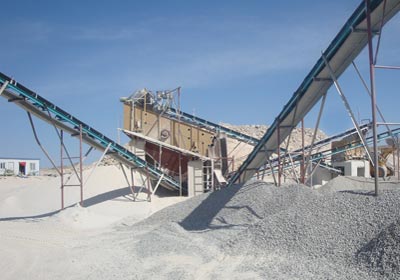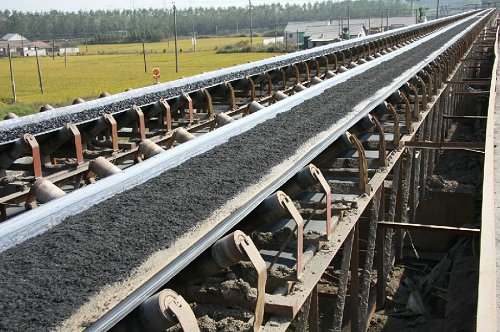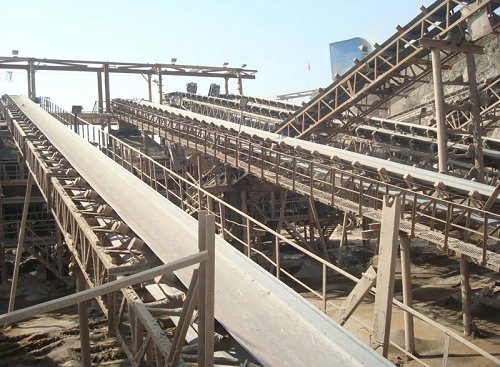The History of Belt Conveyor
Primitive conveyor belts were used since the 19th century. In 1892, Thomas Robins began a series of inventions which led to the development of a conveyor belt used for carrying coal, ores and other products. In 1901, Sandvik invented and started the production of steel conveyor belts. In 1905 Richard Sutcliffe invented the first conveyor belts for use in coal mines which revolutionized the mining industry. In 1913, Henry Ford introduced conveyor-belt assembly lines at Ford Motor Company's Highland Park, Michigan factory. In 1972, the French society REI created in New Caledonia the then longest straight-belt conveyor in the world. In 1963-64, First Indian Small Scale Industrial Unit with Japanese Plant for Rubber Belts for Conveyor / Elevator / Transmission was installed near National Capital Territory of Delhi and its MrBelts Conveyor Belting has been widely used in Steel, Cement, Fertilizer, Thermal Power, Sponge Iron Plants and Coal / Mineral establishments / Mines, Port Trusts and similar material handling applications of Industry for the last over 4 decades.
Structures of Belt ConveyorThe conveyers consist of standard parts, which are advanced and simple in structure, easy to maintain. They are widely used in mining, metallurgical and coal industry to transfer sandy or lump material, or packaged material. According to different transferring equipment, the transfer system can be one independently or multi-conveyers or combined with other transfer equipments. The belt conveyer can be installed horizontally or aslope to meet the needs of different transfer lines.
Benefits of Belt ConveyorEliminating workplace injuries
Improving your productivity
Decreasing fines, citations and costly shutdowns
Extending the life of your equipment
Ensuring compliancy
Application of Belt conveyorOur belt conveyor is adaptable for stationary and mobile crushing plants. It is widely used in mining, metallurgical and coal industry to transfer sandy or lump materials, or packaged materials.



 Hotline: 0086-371-67898087
Hotline: 0086-371-67898087 

